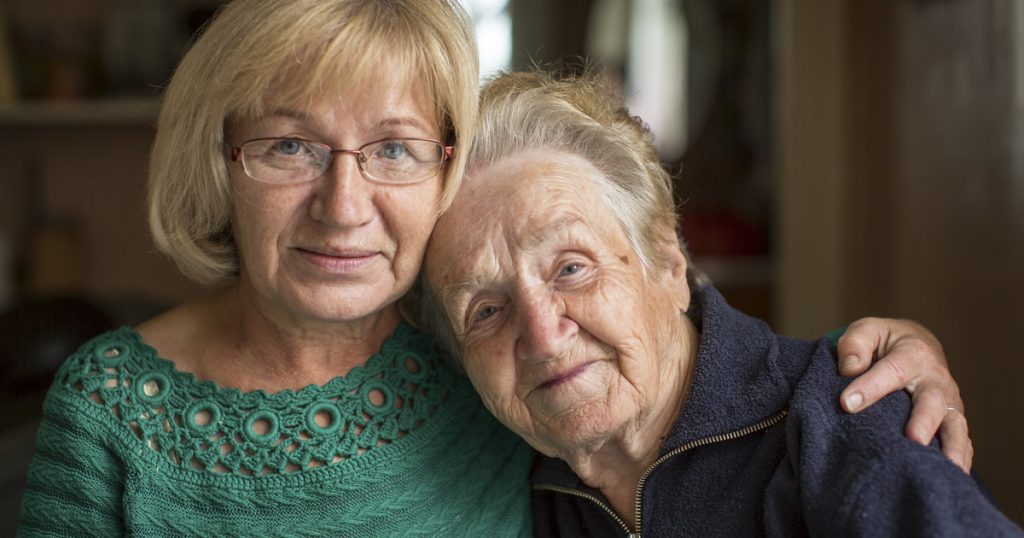
For many elders, the thought of moving into a traditional nursing home setting can produce a great deal of anxiety. Consequently, even if you intend to propose something radically different—elder care as opposed to a nursing home—you should approach the conversation carefully. How your initial discussion with a parent or other loved one goes can have a significant impact on their transition to a new group living setting.
There are a number of steps you can take to make your conversation with an elder about moving into a skilled nursing environment more positive. Before initiating the discussion, you should do your research and understand that there are many alternatives to living in a nursing home. The real-home setting at Green House homes is one example. Knowing that the senior living landscape has changed significantly in recent years can put an elder’s mind more at ease. There are many new options available today.
Elders also appreciate hearing that the current conversation will simply serve as a starting point for a continuing discussion. Making that clear upfront helps keep them from getting defensive. They don’t want to feel that the outcome of this one conversation will determine their fate.
Along the same lines, you should assure them that their thoughts and concerns are valid. Let them know that you can appreciate their perspective, and that their input is important. Elders have had to make important decisions all their lives. They don’t want to be viewed as incapable of providing feedback on this one.
Be sure to use an understanding tone and caring language. However, know that you will need to address some sensitive issues. Whether in the initial discussion or a future conversation, you should talk about things like the progression of illnesses, the risk of falls, and other aging concerns that are best handled in a group setting. It’s also important to discuss the elder’s finances. You will want to explain how maintaining an independent residence can deplete reserves more rapidly in many cases.
Finally, you should do your best to conclude each discussion on a positive note. While making the transition to a skilled nursing community can be difficult, it is almost universally true that elders who choose a real-home setting over a nursing home end up feeling involved, invigorated, and much more in control of their lives.
It is common for elders to fear nursing homes and consequently cling tightly to their independence. However, when they learn about what a real-home skilled nursing setting like Green House Homes at Mirasol offers, they are able to envision a positive future shared with other elders and a caring support team. With patience and understanding, you can help them come to the conclusion that making the transition will be a new and interesting adventure.
 The Green House Project began in 2003, opening its first nursing homes in Tupelo, Mississippi. Now in 2018, there are 242 licensed homes in 32 states, including the Loveland, Colorado location.
The Green House Project began in 2003, opening its first nursing homes in Tupelo, Mississippi. Now in 2018, there are 242 licensed homes in 32 states, including the Loveland, Colorado location.
Learn more about Green House Homes in our Colorado community and why they are the preferred model of elder care here.

Elders understandably value their independence. And, they are sometimes reluctant to move into a group living situation. Consequently, as their adult child, you may find yourself needing to initiate the conversation regarding your aging parent’s transition into an elder care setting. But, what are the indicators that they could use some help? Knowing what to look for can give you the assurance that you are doing the right thing by opening up a dialogue.
Here are some changes that might signal it would be good for your parent to be in an elder care environment:
If one or more of the above indicators is present, it may be a good idea to start a conversation about life transitions. This should include the many benefits of moving to an elder care setting. It can be reassuring to your parent to let them know early on that there are many options today beyond the traditional nursing home. Many elders have a negative opinion of that kind of environment.
At Green House Homes, we have a different philosophy on elder care. We believe, and know from experience, that seniors thrive in settings where they are empowered and relied upon to be contributing members of a team that keeps a real home operating smoothly. So, the elders who live here would be the first to tell you that our approach has given them a renewed sense of purpose. It has also allowed them to make strong connections with their fellow seniors and caregivers.
 For most seniors, there are multiple options when it comes to their living situation. These might include remaining in their home, moving in with family members, or living in a skilled nursing facility. While each has its pluses, there are a number of compelling benefits associated with joining other elders in a shared living environment where skilled nursing care is available.
For most seniors, there are multiple options when it comes to their living situation. These might include remaining in their home, moving in with family members, or living in a skilled nursing facility. While each has its pluses, there are a number of compelling benefits associated with joining other elders in a shared living environment where skilled nursing care is available.
Are you considering a move to a skilled nursing facility (for yourself or a loved one)? If so, here are just some of the many benefits:
Green House Homes at Mirasol is a skilled nursing facility in Loveland, Colorado. Our unique style of care provides residents with the effective and compassionate medical assistance. And it’s provided in an environment where elders are encouraged to be valuable contributors to the success of the home. It’s this combination of support, independence, and responsibility that produces powerful peace of mind and a sense of fulfillment and satisfaction.